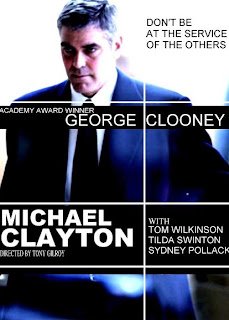
"The Last King of Scotland" *** (out of ****)
One of the most talked about performances of 2006 was Forest Whitaker as Ugandian leader Idi Amin. He just seemed like a sure bet come Oscar time. I didn't even see the movie at the time yet I knew he was going to win an Oscar.
Well I finally got around to watching this film. What an over-rated film and an over-rated performance.
Is Forest Whitaker convincing as Idi Amin? I guess so. I don't know anything about the real Idi Amin. I have nothing to compare his performance to. But, even if you find that to be a baseless claim, after all, how many times have we seen actors play real people we've never heard of? Julia Roberts won an Academy Award for playing Erin Brockovich, and I never heard of her either before the film.
So now the question is, not how does he compare to the real person but how effective is the character strictly as a character? Is it a convincing performance? For that I have to say no. I never found Amin particulary evil. I didn't fear him. Much of that is because of the structure of the film's screenplay.
The film is not told from Idi Amin's point of view. Instead it is told from the perspective of an outsider, a scotsman, Dr. Nicholas Garrigan (James McAvoy). A recent medical graduate who wants to change the world. After spinning a globe and deciding to travel wherever his finger lands, he finds himself in Uganda.
Quickly Garrigan finds himself in the good graces of Amin, after helping him with a sprained finger. He eventually becomes one of Idi Amin's closest advisors. And it is through Garrigan we discover things about Amin.
My problem with the script, based on Giles Foden's novel and adapted by Peter Morgan and Jeremy Brock, is by not having Idi Amin as the lead character we can never quite get into his head. And because of that we do not understand him and eventually do not fear him.
Had the film followed Amin and told us his story I think that would have made the film more effective.
"The Last King of Scotland" is set up as a thriller and there are a few suspenseful moments but the film never succeeds as a thriller. At best it is a bio-pic and an average one at that.
While the film is told by Garrigan, I felt he gave the better performance if only because I had more of an investment with his character. Not good when he's not your subject and the film is about Idi Amin.



 "The Invasion" *** (out of ****)
"The Invasion" *** (out of ****) There seems to be a consenus that 2007 was a very good year at the movies. For some reason or another, I never fully agreed. For all the talk of "Juno", "No Country For Old Men" and "There Will Be Blood", I felt the critics hyped these movies quite a bit. I thought all were good films but not great films. Why "Juno" is nominated for "Best Picture" at this year's Oscars is beyond me. Why "No Country For Old Men" was the most celebrated film of the year, appearing on over 100 "Top Ten" list is also a mystery to me.
There seems to be a consenus that 2007 was a very good year at the movies. For some reason or another, I never fully agreed. For all the talk of "Juno", "No Country For Old Men" and "There Will Be Blood", I felt the critics hyped these movies quite a bit. I thought all were good films but not great films. Why "Juno" is nominated for "Best Picture" at this year's Oscars is beyond me. Why "No Country For Old Men" was the most celebrated film of the year, appearing on over 100 "Top Ten" list is also a mystery to me.



 "2 Days in Paris"
"2 Days in Paris" 












